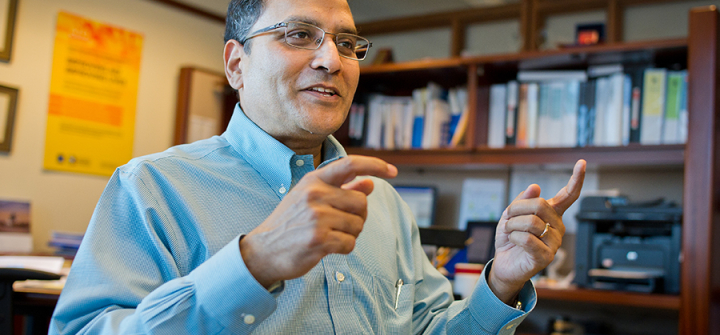500 Million People Need Health Insurance? Call Indu Bhushan
Last week, Prime Minister Narendra Modi launched a massive government-funded program in India that will bring health insurance to more than 500 million people. The program includes establishing 150,000 health centers and providing access to secondary and tertiary care. Supporters have hailed the initiative as a major step forward for health in India, while skeptics have questioned whether the initial funding will be adequate for the program dubbed “Modicare.”
Tasked with making the program a reality is Indu Bhushan, who served most recently as director-general of the Asian Development Bank’s East Asia Department. In an exclusive interview with Global Health NOW, Bhushan, PhD, MHS, discusses what his priorities will be as CEO of the Ayushman Bharat National Health Protection Mission, as well as the plan’s feasibility and its potential impact.
Modicare will provide health insurance to 500 million people. That’s a massive challenge. Where will you start?
I feel honored and privileged that Prime Minister Modi has chosen me to lead this ambitious and potentially game-changing initiative. The first step will be to agree on the approach to be followed and develop clear guidelines. The government has established 6 working groups to work on processes to follow in selecting beneficiaries, accrediting providers, making payments to providers, creating the demand for the use of services, how to ensure the continuum of care, etc.
Working with these groups to prepare a blueprint for the scheme and launching it in the next few months is the first major step. Then comes the big challenge—the implementation.
Could you sketch out the highlights of the plan for us?
Ayushman Bharat has 2 pillars. First, strengthening primary health care through establishing 150,000 health and wellness centers, which will provide the usual public health and reproductive and maternal and child health services as well as screening for noncommunicable diseases. Second, covering 500 million of the poorest people in the country for the expenditure they incur in seeking secondary and tertiary health care.
Is a plan this big economically feasible?
The plan is both technically and financially feasible. It is an economically sound initiative. Several other developing countries, including China, Thailand and Vietnam, have implemented similar schemes with considerable success. Prime Minister Modi is very committed to this scheme—strong political commitment, of course, is an essential prerequisite for the success of an initiative like this.
How long will it be before it is up and running?
Difficult to say. Every long journey starts with a series of small steps. We hope to put the plan in place fairly soon. The Prime Minister is keen to expand the coverage to 500 million people as soon as possible.
How would you like to see Modicare transform the country’s health and its economy?
If implemented well, the ambitious mission will significantly increase access to health care services—especially for the poor, improve the quality of government health services, and expand the coverage of health services—both public and private—in underserved areas. This should considerably reduce the out-of-pocket share of expenditure for health care, which stands at an unacceptably high level of about 70%. Expenditure on health has been a major cause of impoverishment. The mission will help reduce poverty and harness the productive potential of the country by reducing morbidity, improving health and rationalizing health care expenditures.
Join the tens of thousands of subscribers in more than 100 countries who rely on Global Health NOW summaries and exclusive articles for the latest US and global public health news. Sign up for our free weekday enewsletter, and please share the link with friends and colleagues: http://www.globalhealthnow.org/subscribe.html
Indu Bhushan, CEO of the Ayushman Bharat National Health Protection Mission





